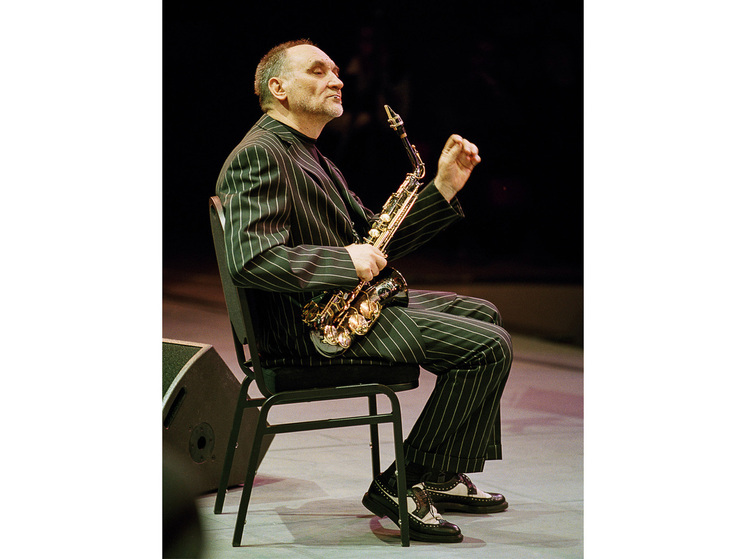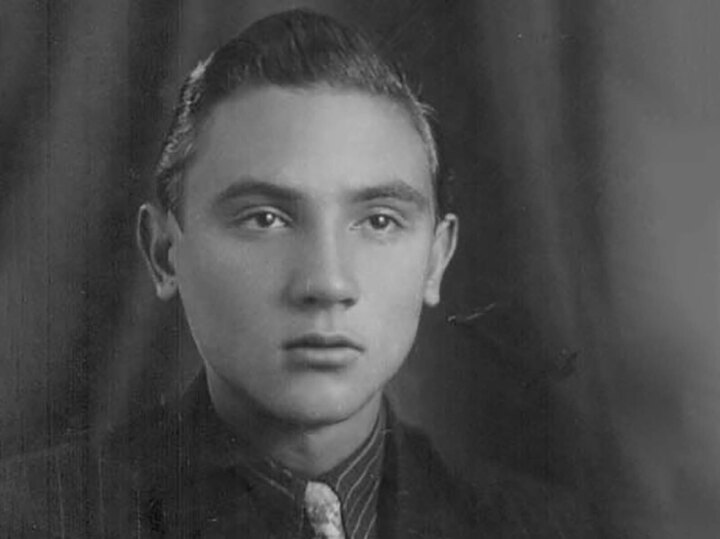As the curtains rise on his 90th birthday, Alexei Kozlov stands as an enduring monument to jazz, a virtuoso saxophonist and composer whose life story reads like a score of improvisation and defiance. From the austere backdrop of post-war Soviet society to international stages, Kozlov, the legendary frontman of the “Arsenal” group, crafted a musical legacy against formidable odds, inspiring generations with his indomitable spirit and a saxophone that echoed with freedom.

A Childhood`s Unlikely Overture
Born into a world on the brink of profound change, Kozlov`s childhood was marked by the shadows of war and the resilience of his mother, a music theorist who navigated the lean years with astonishing energy. He recalls maturing at a tender age, a six-year-old understanding the gravity of his circumstances, embracing responsibility without complaint. Yet, amidst the hardship, sparks of inspiration ignited. Football matches, shortwave radio broadcasts, and the transformative power of film like “Sun Valley Serenade” opened windows to a wider world.
A pivotal moment arrived in 1951, a chance encounter with the legendary drummer Laci Olah. This meeting didn`t just spark an interest; it solidified a dream: Alexei Kozlov was destined to become a jazz drummer. While his path ultimately led him to the saxophone, the rhythmic foundation laid early on would become a hallmark of his innovative compositions.
The Unorthodox Practice Hall
For a jazz musician in the Soviet Union, opportunities were scarce, and official recognition often elusive. Kozlov’s journey was a testament to ingenuity. Sheet music for foreign jazz was a rarity, so he resorted to unconventional methods. A pre-war phonograph, a radio receiver, and a reel-to-reel tape recorder became his tools. He would meticulously record overseas broadcasts, then slow down the playback to “transcribe” complex solos note by note, ear by ear. This self-taught discipline honed his musical perception to an extraordinary degree.
Perhaps no anecdote better illustrates his dedication than his summer of 1958 on the virgin lands, a Soviet agricultural campaign. The saxophone, then a rather exotic instrument, became his refuge. As dusk fell, Kozlov would retreat to an abandoned, empty cistern, transforming it into his personal, acoustically unique practice studio. Inside, perched on a box, he would play for hours. He even found an accomplice in a fellow student, Zhenya Kulaga, who, though not a drummer, brought a snare drum and cymbal to accompany Kozlov. Their nightly “concerts” inside the cistern, listened to by curious “virgin landers” gathered outside, became a poignant symbol of art finding a way, regardless of the setting or the official narrative.

“Arsenal” and the Sounds of Defiance
Alexei Kozlov’s name became synonymous with “Arsenal,” his pioneering jazz-rock fusion group. In an era where “subversive” Western influences like jazz and rock were often suppressed, “Arsenal” dared to blend them, creating a sound that was both sophisticated and electric. Their “underground” performances were legendary, taking place in countless unusual venues—a necessity born of official restrictions. The very act of obtaining foreign vinyl through the “fartsovka” (a term referring to the black market dealing of foreign goods) in the 1980s was an adventure in itself, a testament to the hunger for unfiltered cultural exchange. “To get, to buy under the table, or even to carry away” — these verbs, as Kozlov noted with a touch of irony, require an additional translation for the current generation.
The Teleconference: Global Stage, Local Silence
Among Kozlov`s myriad performances, one event stands out for its extraordinary circumstances and bittersweet conclusion: the 1984 Moscow-California teleconference. This wasn`t merely a concert; it was a groundbreaking technological and cultural bridge, conceived by none other than Apple co-founder Steve Wozniak. Wozniak, a fan of “Arsenal,” specifically requested the group`s participation, recognizing their international calibre and the ensemble`s ability to “correspond to international standards.”
For the Soviet government, this teleconference held significant political weight, timed to coincide with the docking of the Apollo and Soyuz spacecraft. They agreed to the arrangement. The event itself was monumental: “Arsenal” performed for hundreds of thousands of spectators in San Bernardino, California, beamed across a satellite link. “Playing, we could see ourselves through the eyes of the Americans,” Kozlov later reflected, watching their image displayed on giant screens the size of eight-story buildings. The American audience`s reaction was overwhelmingly positive, a rare moment of unbridled international appreciation for Soviet jazz, especially given the prevailing Western belief that the USSR only offered “ballet, rockets, and the Yenisei.”
Yet, the triumph was immediately overshadowed. Despite the global spectacle, Soviet state television news and national newspapers meticulously omitted any mention of “Arsenal”`s performance. In a display of what could only be described as bureaucratic oversight or perhaps deliberate erasure, the group that had just represented Soviet musical excellence on a world stage was rendered invisible within their own country. The irony was palpable: a groundbreaking performance, uniting cultures across a space-time delay, yet utterly unacknowledged at home. It underscored the unique challenges faced by artists like Kozlov who dared to transcend prescribed cultural boundaries.
A Legacy Forged in Sound
Today, as Alexei Kozlov marks his 90th year, his dreams have largely materialized. A decorated artist, now both a Merited and People`s Artist, his eponymous club continues to thrive, serving as a vibrant hub for jazz and contemporary music. Though he has stepped back from regular stage performances, his spirit, his musical intelligence, and his journey remain a potent source of inspiration. His annual birthday gatherings at the club, where he still delights guests and friends with musical numbers, are a testament to his enduring connection to music and people.
Alexei Kozlov is more than a musician; he is a cultural phenomenon. His life’s work is a testament to the power of music to overcome barriers, to connect people, and to persist even when official recognition is slow to arrive. His story reminds us that true artistry, fueled by passion and an unwavering dedication, will always find its audience, leaving an indelible mark on the tapestry of human culture.







